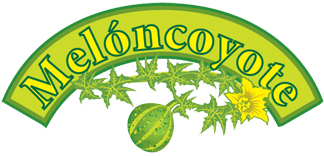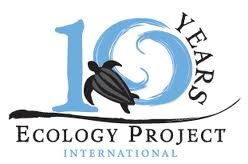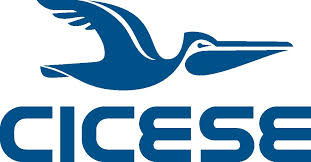WWW.MELONCOYOTE.ORG
Journalism to Raise Environmental Awareness
Grassroots Bulletin on Sustainable Development in Northwest Mexico
DIRECTORY
Collaborators in this issue
Baja California Sur
Miguel Ángel Torres
Talli Nauman
Baja California
César Angulo
Erick Falcón
Aníbal Méndez Martínez
Sergio Morales Polo
Sonora
Rosa María O’Leary Franco
Griselda Franco Piedra
Miguel Ángel Torres
Sinaloa
Kent Paterson
Nayarit
Agustín del Castillo
Machángeles Carvajal
Editorial Board
Talli Nauman (San Ignacio, B.C.S.)
Debra Valov (Mulegé, B.C.S.)
Griselda Franco Piedra (Guaymas, Son.)
Miguel Ángel Torres (Aguascalientes, Ags.)
Agustín del Castillo (Guadalajara, Jal.)
Consultants Vol. 5, No. 1
Dahl McLean, Aracely Rojas, Ernesto Bolado
Translations Vol 5, No. 1
Debra Valov
Jim Morgan
Tom Albrecht
Gloria Abdala
Pacifica
Roberta Weisbard
Acknowledgements
SuMar - Voces por la Naturaleza, A.C.; Fondo de Acción Solidaria, A.C.; Green Grants, Society of Environmental Journalists, Fund for Environmental Journalism; Lasecomujeres.org; Ecology Project International; Tutuaca Mountain Center; Gloria & Dennis Peterson
Design
Debra Valov; Mulegé, B.C.S.
Contact
meloncoyote [at] gmail.com

Melóncoyote is a product of Journalism to Raise Environmental Awareness (abbreviated PECE in Spanish), an independent communications project founded in 1994 with the support of the MacArthur Foundation.
The viewpoints expressed are solely those of the authors. This work may be reproduced in part or whole, with images and illustrations, as long as the publication source and authors are cited.
 |
 |
 |
|
New world order: Tide of trade accords to sweep up Mexico
The meeting in Toluca this past February 19 of Mexico’s Enrique Peña Nieto, Canada’s Stephen Harper, and the United States’ Barack Obama to celebrate 20 years of the North American Free Trade Agreement (NAFTA) was purely about protocol, backing Peña Nieto’s energy reform policies, lauding the treaty itself as an example for future commercial agreements under consideration, and an excellent time for a photo op.
In the so-called North American Leaders Summit, left out were Mexico’s most pressing current issues, including immigration, employment, and US protectionism for certain products and services provided to Mexico, as well as national security and the border.
In regards to the latter subject, a rewrite will be in order once the details are better known of the recent capture in Mazatlán of Joaquín “Chapo” Guzmán Loera, the world’s most wanted man.
It was only at the last minute, under international pressure, that they slipped in an environmental issue: the increasing and alarming death of the monarch butterfly, symbol of the trinational agreement. Nothing else.
It was a show of support for NAFTA and Peña Nieto, a way to say to the other nations that this is what the new world order is going to look like with the formation of economic and commercial blocs headed by the United States, and with petroleum as the principal commodity. In this vein, we point at the Trans-Pacific Partnership Agreement (TPP) with its objective being to integrate the Asian-Pacific region. México became a signatory member of this commercial agreement on October 8, 2013.
The countries participating in the talks are the United States, Canada, Japan, Australia, New Zealand, Singapore, Malaysia, Brunei, Vietnam, Chile, Mexico, and Peru. They have formed a new bloc in order to face commercial competition from China and other groups, such as the Association of Southeast Asian Nations (ASEAN) and the Southern Common Market (Mercosur).
NAFTA will be the basis for these new trade agreements but they will also include more currently relevant issues, such as the opening up of natural resource markets, and greater benefits and security for foreign investments. The electricity, mining, and scientific research and technology sectors would be included in the free-for-all, completely under the guise of progress.
The bad news in the petroleum market, especially for Mexico, is the gigantic Keystone XL oil pipeline. It would take crude oil from Athabasca, in Alberta, Canada to Texas refineries on the Gulf of Mexico. It is supposed to lower oil prices on the world market, but everyday consumers in the United States and Mexico won’t benefit in the least from the pipeline.
Then there is the Transatlantic Economic and Trade Pact (ETP), currently under negotiation which aims to eliminate trade barriers between the European Union and the United States. Among these are tariffs, unnecessary regulations, and restrictions on investment affecting a variety of economic sectors.
Unlike the Trans-Pacific Partnership, the ETP includes an ample chapter on environmental and health issues, such as the prohibition on genetically modified organisms in crops or other imported products that put citizens’ health at risk.
Mexico, dependent and subordinate to United States corporations, has no voice in these new trade deals, although it will be swept along by whichever blocs are finally formalized.
Trade talks: When is ‘free’ fair?
Discussions between the heads of state of Mexico, the United States and Canada, about the latest free-trade agreement proposal – for the Trans-Pacific Partnership, or TPP – set the unsettling backdrop for the most recent issue of our newsletter on sustainable development.
Unlovingly described as “NAFTA on steroids”, the secretive proposal for talks to boost big business in 12 Pacific Rim countries, reminds those of us who prefer fair trade to be wary of the environmental and employment impacts of such a treaty.
Since we can be pretty sure, based on past experience, that nobody will ask us about it and what we want for our communities’ economies, let’s just say we’re focusing our energies on some issues pertinent to the Northwest Mexico Region, for the time being.
Chief among our concerns is the proposed assault on the culture and economy surrounding the region’s last wild river. Grassroots organizers and scientists are pointing out the folly of federal infrastructure projects to dam the San Pedro Mezquital and siphon its water from sensitive protected wetlands through a massive irrigation channel. Meloncoyote brings you full coverage, direct from Nayarit.
Meanwhile, our publication continues to inform you on how the Yaqui Tribe’s twisted path to water justice meets with new obstructions over the contested Independence Aqueduct in Sonora state. We examine the latest turn of events in the saga of competition over the use of the binational Colorado River, and we recognize fishing families’ involvement in natural resource conservation.
In Baja California coverage, proposals to alleviate the urban woes of Tijuana and Ensenada are a focus of attention, as we bring you true stories of activists and scientists taking pains to protect their local environments.
Coastal real estate development in Baja California Sur and Sinaloa, a major concern of this publication, comes under scrutiny as we report on a complaint filed at the trinacional level charging that Mexico is breaking its own laws in permitting megaprojects in protected and sensitive environmental settings on the Gulf of California. In addition, we provide the details of the latest megaproject threat – in Todos Santos.
We also uncover striking facts to share with you about the industrial polluters in Baja California Sur that have been honest enough to admit what, how much, and just where they release toxics into the environment, as rules for public disclosure of factory waste are strengthened. The islands and shores of the gulf are the scene of a concerted effort to establish mitigation and adaption projects due to the region’s vulnerability to climate change impacts, as you will learn in our first-hand account from a participant in the unprecedented endeavor.
Finally, we revisit the ongoing controversy over the propsed Los Cardones mine in the protected area of Baja California Sur’s Sierra de la Laguna.
We hope you’ll learn things you want to know, share them with friends or family, and tell us what you think. Thanks for reading.
Why Melóncoyote?
Our project dates back to 1994, when “Journalism to Raise Environmental Awareness” (abbreviated PECE in Spanish) was formed. In 2004, PECE played a role in the founding of the national professional organization The Mexican Environmental Journalist’s Network. In 2005, when we started the first grassroots journalism project in the Gulf of California, our team chose the name Melóncoyote because it is a species emblematic of the region at the heart of our mission.
The Coyote Melon, known in Spanish as melón coyote or calabacilla (which includes the species Cucurbita palmata, C. cordata, C. digitata and C. foetidissima) is a wild perennial gourd that is resistant, versatile, beautiful, useful and native to the sandy soils that characterize the Gulf of California zone. The coyote melon is found in the region’s seven states: Baja California Sur, Baja California, California, Arizona, Sonora, Sinaloa, and Nayarit. A vine, Coyote Melon has an immense root that guarantees its survival against hard times while its long stems serve to anchor the soil in fragile areas.
The indigenous peoples of the area, bearers of the region’s traditional wisdom, describe the plant and how it is used. As medicine, it is bitter, but effective. As a musical instrument, it makes a beautiful rattle. Its seeds provide oil and a flour which contains a high level of protein. Its shell is ideal as a container for all matter of things. Because of all of these traits, and because it is an integral part of the food chain and one of the principal foods of the coyote, they named it “Coyote Melon”.
Our team of collaborators chose this name because it is a plant found throughout the region, and in doing so, we wanted to stress our intention to create a large-scale communications medium, capable of spreading (on a regional level) the news about efforts being made towards sustainability. With this symbolic name to represent our work, we are sending a clear message about our respect for the land and the sea, as well as for the ancestral cultures and customs of the region. We see the establishment of this medium for education and dissemination as something urgent, given the idiosyncrasies of the region. We have conceived this project as being an integral element of the environment, something positive like the Coyote Melon.
Faced with the challenges of growth in the region—a low population density, its recent political incorporation into the national government, a high degree of natural attraction and its proximity to the strong investment sector of the United States—we understand the implications of the pressures for development. Dealing with these challenges and pressures will require informed citizens who have the chance to participate in the decisions that affect their land, water, air, biodiversity and their future. We invite others to join with us, to participate in building this medium and to fight for a stable future for the region.
All work on behalf of Melóncoyote is voluntary.

